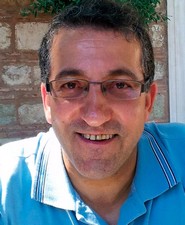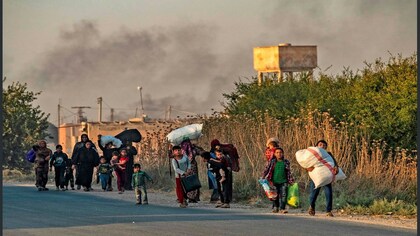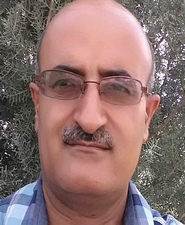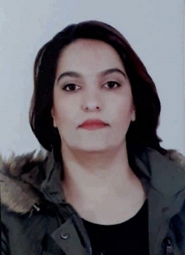Ghassemlou – the Visionary and Beacon of Hope
10:19 - 14 July 2015

By: Majid Hakki
Iran as a sovereign nation-state has historically resorted to assimilatory policies when dealing with its diverse ethnic population. Historically speaking, the dominant mode of governance in both the Pahlavi Dynasty and the current Islamic regime has been oppression, marginalization and assimilation. This has led to widespread differences between the dominant Persian and non-Persian communities and regions. Consequently, dominant forms of socioeconomic, cultural and societal development, access to resources and economic opportunities, educational system etc. is much more visible and dominant in the Persian regions. While underdevelopment, weak economic infrastructure, widespread poverty, unequal access to national resources, educational and political system is rampant among non-ethnic Persian.
The Kurdish society similar to the other non-Persian societies in Iran, has suffered a great deal—from its underdeveloped economic sector, unemployment to its social structure and even political organization. The lack of unity, cooperation, tolerance and collaboration and the widespread fractions, and division among the current Kurdish political organizations, has prevented them from establishing a unified platform to combat the regime. This disunity has negatively impacted the Kurdish national aspiration, and many ordinary Kurds have lost confidence in these organizations. In order to restore the lost of confidence, and unite the population, a strong leader is needed to lead the people.
A strong leader has exemplary characters. He or she is one that is honest and trustworthy and people trust their leadership abilities to lead them toward progress, development, freedom and equality. He or she is one that is confidant in the struggle of the people and brings out the confidence in others. S/he is one that is an inspirational and a motivator. A strong leader is one that is consciousness and compassionate about the struggles of people and works to dismantle the social, political and economic structures that causes inequality, oppression and suffering. A strong leader is one that re-defines the national identity, strengthens collective consciousness and restores unity among the different groups in society. He or she is one that becomes a source of hope, a liberator and an inspiration to generations to come. Dr. Abdul Rahman Ghassemlou-the predominate Kurdish leader and scholar exemplifies such qualities.
Ghassemlou and his political party, the Democratic Party of Iranian Kurdistan (PDKI) revived the Kurdish national struggle for liberation after decade of assimilation and oppression policies implemented by the previous Monarch regime. Ghassemlou’s stance on peaceful political activism (whenever, possible), firm advocate of the rights of the Kurdish people, strong belief in the struggle and liberation of the Kurdish nation, desire for a democratic society has made an inspirational figure among his people. He envisioned a democratic society for Iran and Kurdistan—where the Kurds could govern themselves, have control over their own fate and resources. In this new society, resources would be equality divided between the different regions and nations, and people would be treated with the same level of respect and dignity regardless of their ethnic background and race. Gender, social, economic equalities would prevail in this new society. Ghassemlou is moreover, the only Kurdish leader, who successfully appropriated western notions of democracy, liberty, and individual rights within the structure of its party and society. He further, integrated elements of social, political and economic structures dominate in the western world in his party’s program. He was the man who could bring peace, prosperity, liberation and equality to his people. Ghassemlou was also a human rights advocate, who struggled to establish equality and bring about the much-needed social justice to the new society.
Ghassemlou’s vision and commitment to social justice, equality and liberation of the Kurdish people proved to be a threat to the new theoretic regime of Tehran. To prevent such vision from spreading in society, the Mullah’s began their vicious assassination plot. To do this, they invited Ghassemlou to a peaceful negotiation set to take place in Vienna, Austria in July of 1989. This negotiation resulted in the vicious assassination of Ghassemlou and his aides on July 13, 1989. His death was a major blow to the Kurdish national struggle and liberation aspirations in Eastern Kurdistan and the PDKI as a political organization.
The Mullahs thought that by removing Ghassemlou, the Kurdish national struggle and aspiration for liberation under his party’s leadership would vanish. Contrary to this belief his party and the Kurdish nation continued on and continue his struggle. Not only did he not die, his vision for a democratic society under the leadership of his Party continues to be a source of aspiration and hope for generations to come—similar to other charismatic leaders who lost their lives for the liberation of their people and the progress of humanity.
Ghassemlou therefore, isn’t the only leader to have been assassinated by those fearing his visions, message, struggle, charisma, and leadership qualities. Like Ghassemlou both Spartacus, and Mahatma Gandhi lost their lives fighting oppression and discrimination. Nelson Mendela another predominate African leader was incarcerated for 19 years because of his message. These examples show us that those struggling for the freedom of the oppressed, fighting for justice, freedom and liberation become threat to those in power. They may as a result of this fear be incarcerated, tortured and eventually assassinated, but their visions and ideals become a source of hope for generations to follow.
Ghassemlou has become the beacon of hope for the oppressed and marginalized Kurdish nation, and will continue to inspire generations to come.
This article was edited by Kajal Mohammadi.
Iran as a sovereign nation-state has historically resorted to assimilatory policies when dealing with its diverse ethnic population. Historically speaking, the dominant mode of governance in both the Pahlavi Dynasty and the current Islamic regime has been oppression, marginalization and assimilation. This has led to widespread differences between the dominant Persian and non-Persian communities and regions. Consequently, dominant forms of socioeconomic, cultural and societal development, access to resources and economic opportunities, educational system etc. is much more visible and dominant in the Persian regions. While underdevelopment, weak economic infrastructure, widespread poverty, unequal access to national resources, educational and political system is rampant among non-ethnic Persian.
The Kurdish society similar to the other non-Persian societies in Iran, has suffered a great deal—from its underdeveloped economic sector, unemployment to its social structure and even political organization. The lack of unity, cooperation, tolerance and collaboration and the widespread fractions, and division among the current Kurdish political organizations, has prevented them from establishing a unified platform to combat the regime. This disunity has negatively impacted the Kurdish national aspiration, and many ordinary Kurds have lost confidence in these organizations. In order to restore the lost of confidence, and unite the population, a strong leader is needed to lead the people.
A strong leader has exemplary characters. He or she is one that is honest and trustworthy and people trust their leadership abilities to lead them toward progress, development, freedom and equality. He or she is one that is confidant in the struggle of the people and brings out the confidence in others. S/he is one that is an inspirational and a motivator. A strong leader is one that is consciousness and compassionate about the struggles of people and works to dismantle the social, political and economic structures that causes inequality, oppression and suffering. A strong leader is one that re-defines the national identity, strengthens collective consciousness and restores unity among the different groups in society. He or she is one that becomes a source of hope, a liberator and an inspiration to generations to come. Dr. Abdul Rahman Ghassemlou-the predominate Kurdish leader and scholar exemplifies such qualities.
Ghassemlou and his political party, the Democratic Party of Iranian Kurdistan (PDKI) revived the Kurdish national struggle for liberation after decade of assimilation and oppression policies implemented by the previous Monarch regime. Ghassemlou’s stance on peaceful political activism (whenever, possible), firm advocate of the rights of the Kurdish people, strong belief in the struggle and liberation of the Kurdish nation, desire for a democratic society has made an inspirational figure among his people. He envisioned a democratic society for Iran and Kurdistan—where the Kurds could govern themselves, have control over their own fate and resources. In this new society, resources would be equality divided between the different regions and nations, and people would be treated with the same level of respect and dignity regardless of their ethnic background and race. Gender, social, economic equalities would prevail in this new society. Ghassemlou is moreover, the only Kurdish leader, who successfully appropriated western notions of democracy, liberty, and individual rights within the structure of its party and society. He further, integrated elements of social, political and economic structures dominate in the western world in his party’s program. He was the man who could bring peace, prosperity, liberation and equality to his people. Ghassemlou was also a human rights advocate, who struggled to establish equality and bring about the much-needed social justice to the new society.
Ghassemlou’s vision and commitment to social justice, equality and liberation of the Kurdish people proved to be a threat to the new theoretic regime of Tehran. To prevent such vision from spreading in society, the Mullah’s began their vicious assassination plot. To do this, they invited Ghassemlou to a peaceful negotiation set to take place in Vienna, Austria in July of 1989. This negotiation resulted in the vicious assassination of Ghassemlou and his aides on July 13, 1989. His death was a major blow to the Kurdish national struggle and liberation aspirations in Eastern Kurdistan and the PDKI as a political organization.
The Mullahs thought that by removing Ghassemlou, the Kurdish national struggle and aspiration for liberation under his party’s leadership would vanish. Contrary to this belief his party and the Kurdish nation continued on and continue his struggle. Not only did he not die, his vision for a democratic society under the leadership of his Party continues to be a source of aspiration and hope for generations to come—similar to other charismatic leaders who lost their lives for the liberation of their people and the progress of humanity.
Ghassemlou therefore, isn’t the only leader to have been assassinated by those fearing his visions, message, struggle, charisma, and leadership qualities. Like Ghassemlou both Spartacus, and Mahatma Gandhi lost their lives fighting oppression and discrimination. Nelson Mendela another predominate African leader was incarcerated for 19 years because of his message. These examples show us that those struggling for the freedom of the oppressed, fighting for justice, freedom and liberation become threat to those in power. They may as a result of this fear be incarcerated, tortured and eventually assassinated, but their visions and ideals become a source of hope for generations to follow.
Ghassemlou has become the beacon of hope for the oppressed and marginalized Kurdish nation, and will continue to inspire generations to come.
This article was edited by Kajal Mohammadi.



